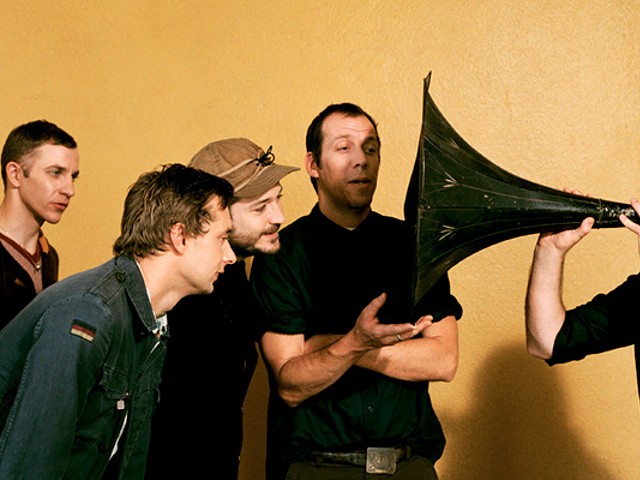Game Theory's Scott Miller Gets Posthumous Biography, Record Reissues
[
{
"name": "GPT - Leaderboard - Inline - Content",
"component": "41932919",
"insertPoint": "5th",
"startingPoint": "3",
"requiredCountToDisplay": "3",
"maxInsertions": 100
}
]
In the world of music, posthumous fame usually arrives in one of two ways. There's the deck-clearing version, where an established artist's odds and ends are elevated from “rough outtakes” to “album-level material.” These releases function as revenue streams first and foremost. (See: Amy Winehouse, Notorious B.I.G., Nirvana.) Then there's the cult-artist version, where an artist ignored in his/her own time gets a second chance at public recognition. (See: Nick Drake, Ian Curtis, Sandy Denny.)
With Scott Miller, it's definitely the second option. When he died suddenly in 2013, it felt surprisingly personal to those of us who loved his music. As the lead singer and primary songwriter of Alternate Learning, Game Theory and the Loud Family, Miller spearheaded a series of recordings packed to the brim with memorable songs, wry and intelligent lyrics, and a healthy appreciation for experimentation. The word “genius” gets thrown around a lot in music, but it seems like a fitting way to describe Game Theory's Lolita Nation or the Loud Family's Interbabe Concern. Despite the unusually high quality of his work, Miller went largely unheard in his lifetime but for a tiny core audience. Two current projects seek to broaden that recognition.
First of all, there's a biography coming out this fall, Don't All Thank Me At Once: The Lost Genius of Scott Miller. Written by veteran rock critic Brett Milano and published by 125 Records (who released the Loud Family's last CD, What If It Works), it promises to tell not only Miller's story, but more generally, “the story of the college and indie-rock explosion of the 1980s and 1990s, when everything seemed possible but some of the flagship artists still managed to fall through the cracks.” Milano managed to track down and interview almost every member of Miller's three main bands (no small feat: this includes at least two dozen people). He's also interviewed Mitch Easter, who produced many of Game Theory and the Loud Family's recordings, Aimee Mann, with whom he had planned to collaborate, and others from Miller's life and career. Milano says that he was inspired by Holly George-Warren's Alex Chilton biography, A Man Called Destruction. This bodes well for the project, as well as for those of us who crave insight as to how Miller dealt with his setbacks. (Keep watching 125 Records' site for details.)
Meanwhile, Omnivore Recordings continues to reissue Game Theory's 1980s recordings. So far it's about halfway through the discography, with remastered versions of 1982's Blaze of Glory, 1984's Dead Center (encompassing the Distortion and Pointed Accounts of People You Know EPs), and 1985's Real Nighttime. Each of these reissues includes extra tracks, new interviews and detailed recording information. That leaves at least three more albums to go, including some of his best work. Omnivore resumes the series later this year with 1986's The Big Shot Chronicles. (There are tantalizing rumors of unreleased tracks as well.).
It's hard to know what Scott Miller would have thought of all this activity. Then again, perhaps he knew that his work would live on after him. “And write the obit when you do/He never ran out when the spirits were low/A nice guy as minor celebrities go,” he sang on Game Theory's 1987 track, “Together Now, Very Minor.” A nice guy, indeed.






